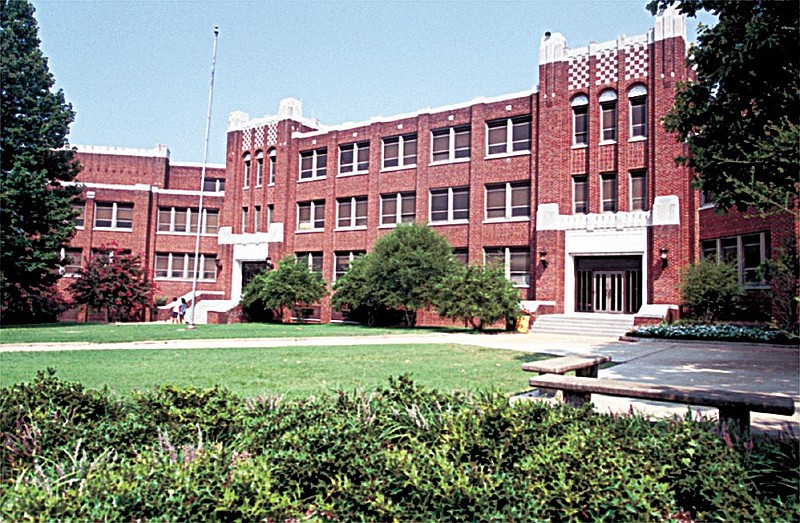Officials in Little Rock hope to obtain from the National Park Service a designation of national significance for the property that today serves as Dunbar Magnet Middle School, members of the Little Rock Historic District Commission were told on Thursday.
The Historic District Commission is expected to submit a letter of support for a federal grant application related to the nomination push.
At the moment, the site is listed in the National Register of Historic Places as "Dunbar Junior and Senior High School and Junior College," with a designation of state significance.
The combined junior high school, high school and junior college educated Black students in Little Rock during a period of more than 20 years leading up to the mid-1950s.
Completed in 1929 as the Negro School of Industrial Arts, the name was later changed to Paul Laurence Dunbar High School, according to the Encyclopedia of Arkansas.
When it was dedicated in 1930, the building at the corner of Wright Avenue and South Ringo Street "housed classrooms for grades seven through twelve and also had a wing for Dunbar Junior College, a two-year institution with an emphasis upon training teachers," the online encyclopedia says.
The school continued to operate in those capacities until the mid-1950s, when the junior college shut down and Dunbar became solely a junior high school in light of the completion of the new Horace Mann High School, according to the Encyclopedia of Arkansas.
The neighborhood surrounding the school was added to the National Register in 2013 as a locally significant historic district.
A nationally significant property recognized as a National Historic Landmark "is of exceptional value in representing or illustrating an important theme in the history of the nation," a frequently-asked-questions page on the website of the National Park Service says. "Properties listed in the National Register are primarily of state and local significance. With a state or locally significant property, its impact is restricted to a smaller geographic area."
The same section of the frequently-asked-questions page refers to Little Rock Central High School as an example of a nationally significant site "because it was the site of the first major confrontation over implementation of the Supreme Court's 1954 decision outlawing racial segregation in public schools."
More than 2,500 of the more than 90,000 entries in the National Register are National Historic Landmarks, according to the National Park Service's website.
At Thursday's meeting of the Historic District Commission, Urban Designer Hannah Ratzlaff told members that the city of Little Rock, in partnership with the Little Rock School District and the Quapaw Quarter Association -- a local historic-preservation group -- will apply for a grant through the National Park Service's Underrepresented Communities Grant Program.
The main point is to write a new nomination for the Dunbar property, Ratzlaff explained.
The 1980 nomination document does not go into much detail with regard to the more important aspects of the site, she said.
There is an argument for the site being nationally significant and the Little Rock School District would like to pursue it, Ratzlaff said.
Instead of amending the earlier nomination, a whole new one needs to be written because the nomination process and documentation "has changed so much since the '80s," Ratzlaff said, "which ends up being a good thing and a tough thing."
The grant would provide funding to hire a consultant to perform research related to the site and "really beef up" the argument for national significance, she said.
In a voice vote, commission members indicated their authorization of the letter of support tied to the Underrepresented Communities Grant Program application.
